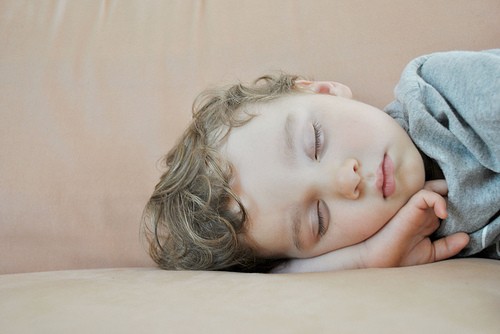
Poor sleeping habits can make children gain unnecessary weight, according to a new study.
The findings published in the journal Pediatrics highlighted the consequences of not getting a good nights' sleep during childhood. Researchers found that sleep deprivation encouraged children to eat more food and thus gain weight.
Chantelle Hart and colleagues from the Temple University monitored sleeping and eating habits of 37 children, aged between eight and 11, for a period of three weeks. In the first seven days, the participants were asked to sleep properly so that they get the recommended amount of sleep. In the second week, they were asked either to extend their sleeping time or reduce it. During the third week, they slept opposite (reduced sleep or extended sleep) to the way they slept in the previous week.
Results showed that sleep influenced eating habits. During the first week, children slept more and ate less - a straight reduction of 134 calories per day compared to the days they slept fewer hours. Levels of leptin, a hormone that regulates hunger, also decreased during the first week.
Encouraged by their findings, the researchers urged parents and health practitioners to encourage children to sleep more. "Findings from this study suggest that enhancing school-age children's sleep at night could have important implications for prevention and treatment of obesity," Hart said in a news release. "The potential role of sleep should be further explored."
Following a healthy sleeping habit throughout childhood is essential for proper mental and physical development of children. Previous studies have shown that quality sleep improves children's language skills and poor sleep could lead to heart diseases, academic problems and behavioural malfunctioning. According to the National Sleep Foundation, children aged between five and 12 should get 10 to 11 hours of sleep daily.







!['Abhishek will win national award': Abhishek Bachchan's poignant act will tug your heartstrings in slice of life emotional saga I Want To Talk [trailer review]](https://data1.ibtimes.co.in/en/full/805617/abhishek-will-win-national-award-abhishek-bachchans-poignant-act-will-tug-your-heartstrings.jpg?w=220&h=138)



